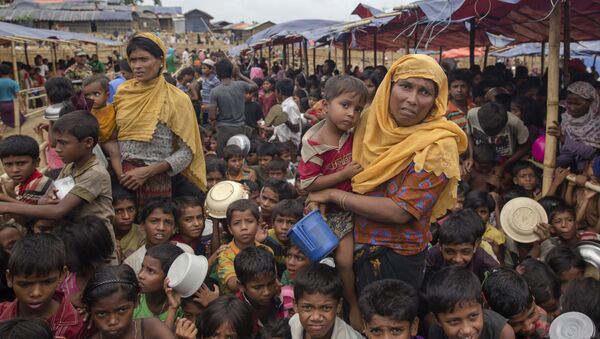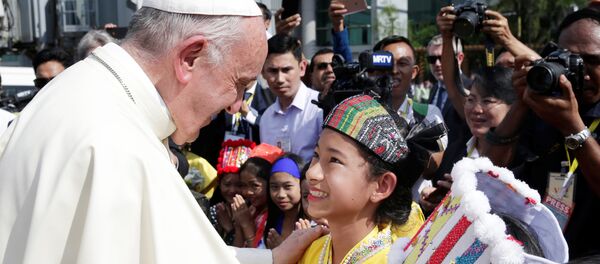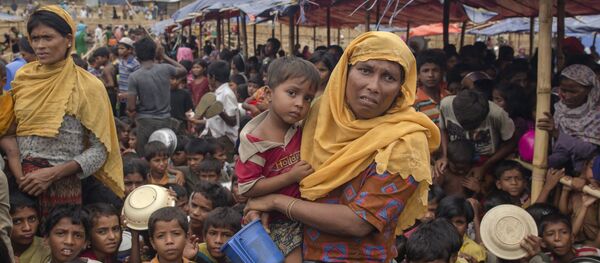New Delhi (Sputnik) — The humanitarian crisis in Southeast Asia triggered by the exodus of Rohingya Muslims from Myanmar to other countries including Bangladesh and India has created a situation wherein Chinese diplomacy has had a clear edge over that of India.
"The deal to repatriate Rohingya refugees from Bangladesh is certainly full of hurdles but it marks a point in the crisis when China reinforced its primus inter pares image in India's so-called traditional sphere of influence," Prof Swaran Singh of School of International Studies in Jawaharlal Nehru University told Sputnik.
Close to the heels of this diplomatic success, Beijing hosted State Counsellor of Myanmar Aung San Suu Kyi in the first week of December. China and Myanmar on the occasion of the summit meeting are reported to have come closer to negotiate the China-Myanmar economic corridor. The development is in contrast to the proposed Bangladesh-China-India-Myanmar (BCIM) connectivity project. Myanmar's Army Chief General Min Aung Hlaing had also visited China in the last week of November.
"China had steadily backed Myanmar's counter-insurgency operation and on the other hand has helped in the repatriation of the refuges. When UN General Assembly resolution condemned Myanmar on Rohingya crisis, China opposed it while India only abstained. China's credibility in financing, building, delivering and managing mega projects in South Asia provides it a clear edge over India. Although India is engaged in humanitarian help and relief, it still looks like India is missing in action, Swaran Singh told Sputnik.
"On matters of International forums, Myanmar knows that China will be of more help to it than India especially when it comes to the UN Security Council owing to its veto powers. It seems that Myanmar feels it is in their interest to be nearer to Beijing than New Delhi," foreign studies expert and international studies professor, Delwar Hossain of Dhaka University told Sputnik.
About 600,000 Rohingya Muslims fled to Bangladesh and some to India after militant attacks by the Arakan Rohingya Salvation Army (ARSA) in August prompted military counter-insurgency operations.




